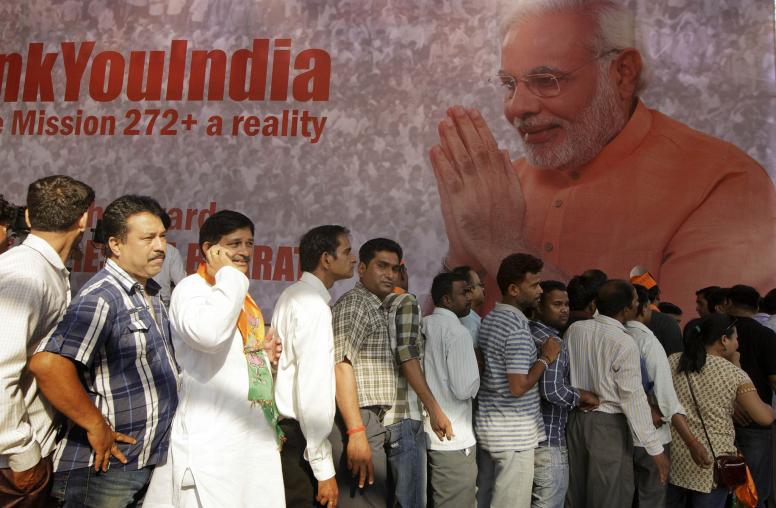Kuwaiti Ambassador Speaks at Institute
The Kuwaiti Ambassador in Washington, Dr. Mohammed Al-Sabah, argued that a strengthened regime of economic sanctions that are "regime lethal" represent the best strategy to confront Saddam Hussein. The ambassador made his remarks at a public event attended by some fifty journalists and policy experts at USIP's offices on December 4.
Ambassador Al-Sabah began his discussion by outlining the ways in which Saddam Hussein is a menace: to his own people, to his neighbors, to security in the Persian Gulf, and to the credibility of the international system.
He then outlined the five basic options available to the international community. The first, maintaining the status quo, Al-Sabah rejected as unacceptable and unsustainable. The second, known as "containment-plus," would involve a less intrusive weapons monitoring regime but a clear and vigorous use of force in the event of Iraqi transgressions. Al-Sabah argued that "containment-plus," though initially attractive, is unsustainable in the long term.
Al-Sabah viewed the third option, support for the Iraqi opposition, as impractical. The opposition is currently fragmented, weak and dispersed, he said, and a serious program of support would require vast amounts of cash and regional support which are currently lacking. Finally, the opposition has been thoroughly infiltrated by Iraqi intelligence organizations.
Fourth, Al-Sabah addressed the possibility of weakening the regime by lifting sanctions. Supporters of this move argue that rather than weaken the regime, sanctions have entrenched it because they empower the government by allowing it to control access to needed commodities. Sanctions, this argument goes, have destroyed the Iraqi middle class and created a captive society. Sanctions have also protected Iraq from invasion by Iran, since smuggling profits and payoffs enrich security officials on both sides of the Iran-Iraq border. Ultimately, however, Al-Sabah judged such a strategy as too dangerous because Saddam could rebuild his weapons of mass destruction programs in a few short months.
Instead, Al-Sabah argued for a fifth option, making the sanctions "regime lethal." He outlined four steps to achieve that goal: denying the regime the fruits of smuggling, ending government control over food distribution and its consequent enhancement of state power, denying the regime any aura of respectability in the world community, and continuously degrading the Iraqi regime's pillars of power. The latter would be achieved by targeting Saddam's security apparatus in any future allied attacks against the Iraqi regime.
In a question-and-answer period that followed the ambassador's talk, most of the discussion centered on how to create an effective sanctions regime despite the many obstacles that exist. Ambassador Al-Sabah maintained that with a great deal of will, and the cooperation of the Iranian government, such a regime could be established. Al-Sabah also distanced himself from the idea of supporting Iraqi opposition forces on Kuwaiti soil, arguing that "Kuwait cannot interfere intrusively into the internal affairs of Iraq."
Speakers
- Dr. Mohammed Al-Sabah
Kuwaiti Ambassador
Media Inquiries
Please contact Ian Larsen (+1.202.429.3870) or Lauren Sucher (+1.202.429.3822) in the Office of Public Affairs and Communications.






